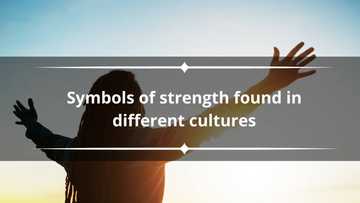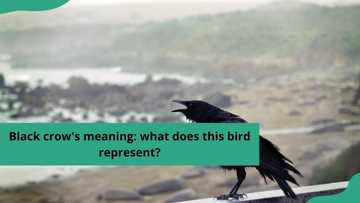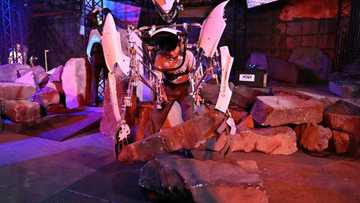What does an upside-down triangle mean? The story behind the symbol
The upside-down triangle has come to be recognised in numerous cultures and contexts worldwide. The symbol means different things depending on the context. Similarly, its name varies globally, from nabla to del, each with a unique application. Find out more about this symbol and the story behind it.

Source: Getty Images
The inverted triangle has existed for as long as human civilisations, religions and cultures have existed. Considering its wide usage across contexts, it is difficult to pinpoint which culture used it first. However, what’s certain is that it has existed in almost every ancient civilisation, including the Egyptian, Chinese and Greek empires.
What does an upside-down triangle mean?
The upside-down triangle is a versatile symbol with many meanings in different fields. As such, the purpose of this symbol depends on the context in which it appears.
Science
The inverted triangle is often used in different fields of science. For instance, the symbol can indicate an inverted delta symbol, commonly referred to in chemistry as the del. The symbol is used in chemical equations to represent heat.
In alchemy, an inverted triangle can represent the element of water. Alchemy is a philosophical and proto-scientific tradition originating in ancient civilisations, including Egyptian, Greek, and Chinese cultures. The three points of the triangle are associated with the alchemical symbols for water, air, and earth, indicating the transformative nature of water.
Traffic signs
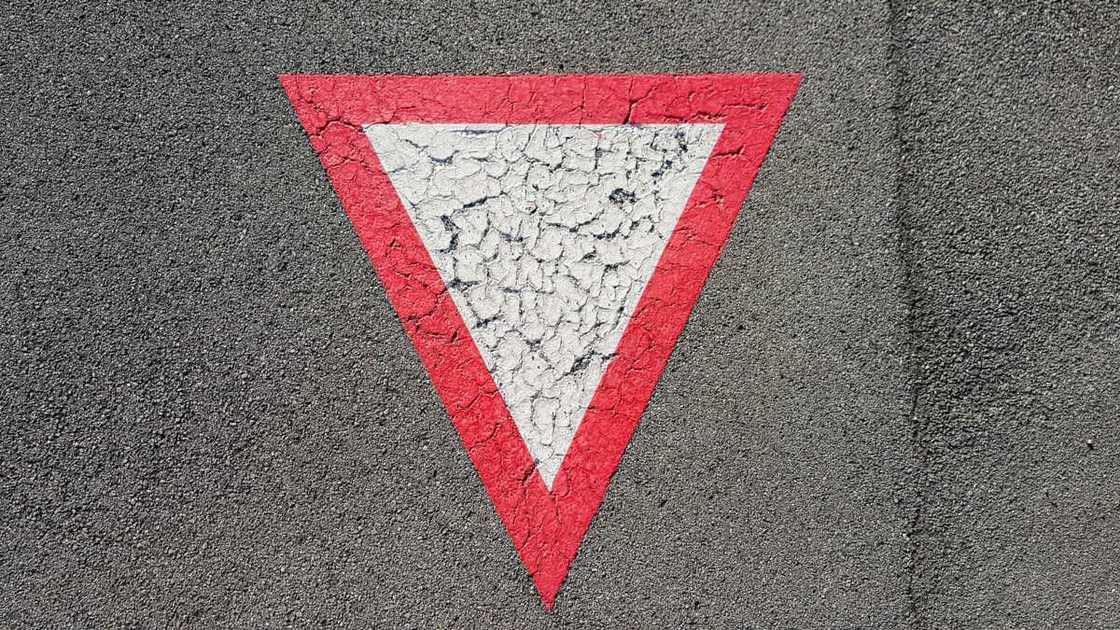
Source: Getty Images
The inverted triangle is often used on the road. What is the upside-down triangle’s meaning in traffic? The symbol, when used as a road sign, means yield. It is primarily used at junctions to signal to motorists on minor roads to give way to those coming from major highways.
In mathematics and geometry
In mathematics and geometry, an upside-down triangle symbol is called the nabla. The nabla often denotes a gradient. It typically represents the concept of change or difference. In mathematics, the sign applies in vector calculus to indicate a downward shift in value.
What does the upside-down triangle symbol mean in politics?
In traditional politics, power is shaped like a pyramid or an upright triangle. This means that the leaders at the top hold all the power, while those at the bottom assist them. In a grassroots view, power flows upwards. The upside-down triangle symbol represents this.
The grassroots view of power is often considered unstable, much like an inverted pyramid. As such, this leadership model often attracts much scrutiny from international and local governments. However, scholars suggest that the grassroots view is ideal for remodelling power, but only with support structures to bolster the unstable system.
Spiritual meaning
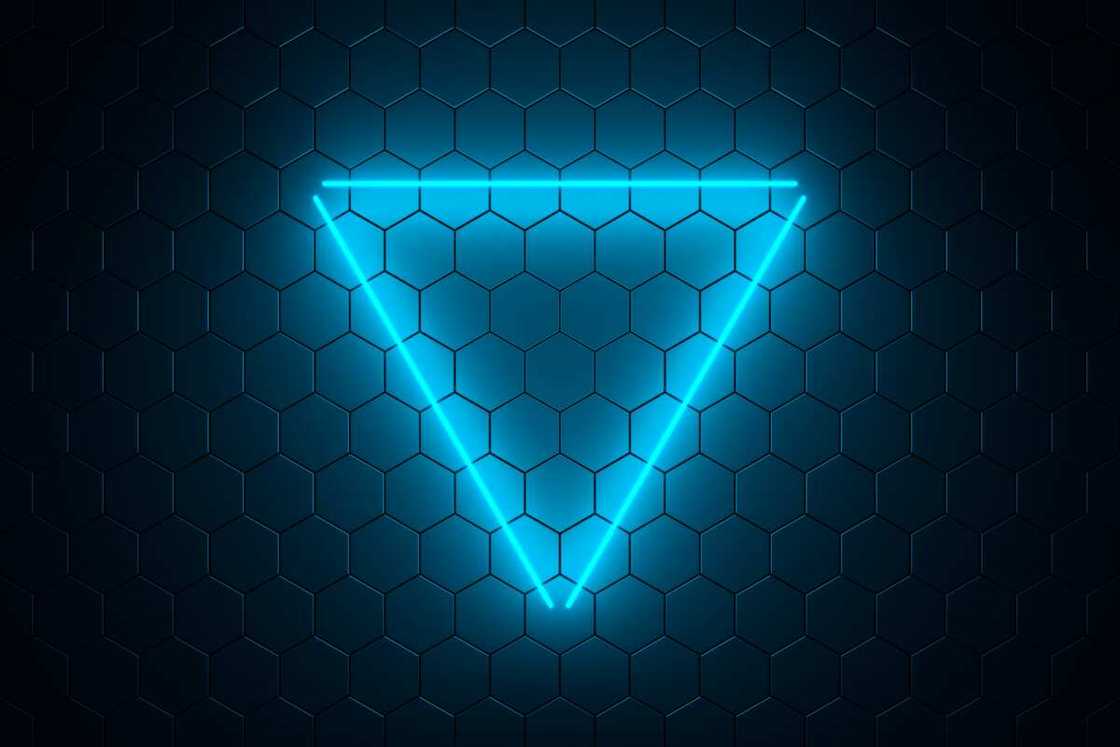
Source: Getty Images
What is the upside-down triangle symbol’s spiritual meaning? As they have three sides, triangles often represent the number three, which is related to perfection. However, even in spiritual and religious contexts, the symbol can have different meanings depending on the belief system. Even so, all its applications associate the sign with a higher realm or unexplainable divinity.
In general spirituality, the inverted triangle is linked to divine feminine energy. Similarly, in Hinduism, the sign is associated with the Goddess Devi, who personifies feminine energy called Shakti. In Buddhism, it is called Pahana and symbolises the journey from ignorance to enlightenment.
In Christianity, particularly in the Catholic church, the inverted triangle can symbolise the Holy Trinity (Father, Son, and Holy Spirit). The sign is not explicitly mentioned in the Bible. Still, many Christians have interpreted some Bible verses so that the sign shows divine reversal. Divine reversal is a Biblical doctrine where God will turn everything upside down in His kingdom.
The inverted triangle symbol also bears a central theme in pagan witch circles, called Wicca. In Wicca culture, the sign is connected to the womb, the West and healing. When a line is drawn across the centre of the triangle, it refers to the earth, nourishment and endurance. Pagan witches often use this symbol for money, fertility, love and “washing away negativity” rituals.
Cultural meanings
As with many other contexts, this symbol means various things for different cultures worldwide. In ancient Greek culture, it is connected with the letter delta, which represents change. The inverted triangle denotes water, symbolising transformation, fluidity and flexibility.
Some feminist groups have adopted the upside-down triangle as a symbol representing the female gender. This usage often contrasts the male gender symbol, a circle with an arrow pointing upwards. The inverted triangle can represent a way to challenge traditional gender roles and stereotypes.
What is the upside-down triangle tattoo’s meaning?
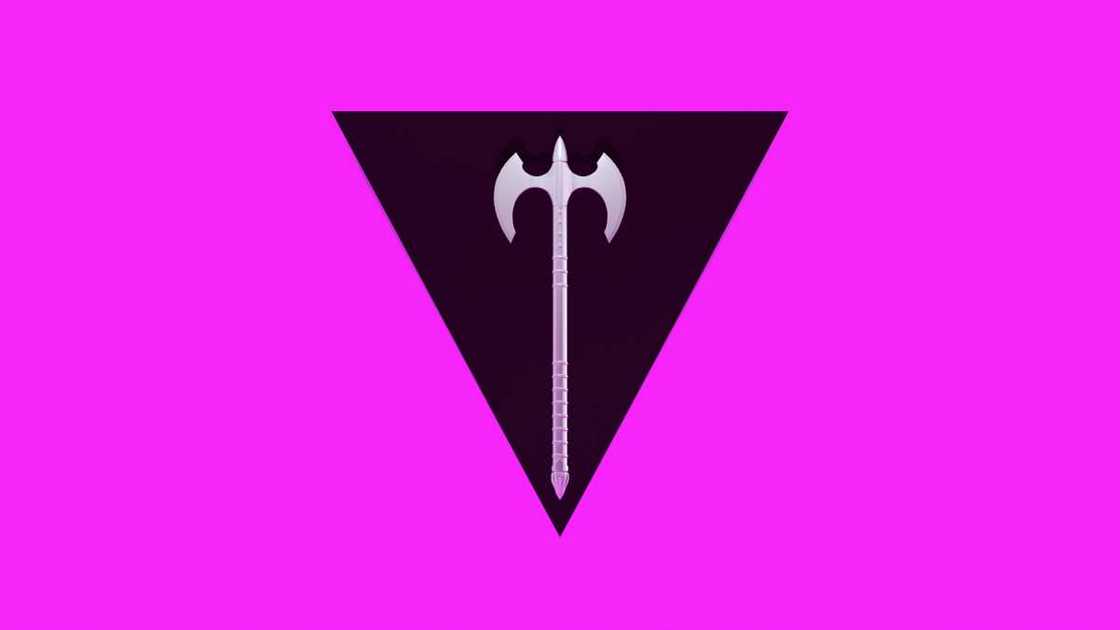
Source: Getty Images
In recent years, the upside-down triangle has symbolised the LGBTQ+ community. The origins of this usage can be traced back to the Holocaust during World War II. LGBTQ+ individuals were persecuted and imprisoned in concentration camps alongside other marginalised groups.
In concentration camps, prisoners had to wear various coloured triangles to denote the reason for their imprisonment. In this context, the Third Reich soldiers used an upside-down pink triangle to identify gay men. Over time, the LGBTQ+ community reclaimed the symbol as a sign of resilience and pride. The tattoo often symbolises the bearer’s membership of the LGBTQ+ community.
However, the tattoo doesn’t have to mean that one is a member of the LGBTQ+ community. The inverted triangle tattoo’s meaning can also depend on the bearer’s belief system. In contemporary culture, people get the tattoo to symbolise their individuality. Many use it as a sign of rebellion against traditional norms to show their unconventional lives.
The upside-down triangle is one of the most common and persistent signs in ancient and modern symbolism. It means different things for various communities, cultures and spiritual groups globally. It is versatile, from simple mathematical applications to representing rebellion and power. It also represents unity under a common purpose.
Legit.ng recently published a list of scary numbers to never call. Around the world, various cultures have legends to explain unexplainable things. Many cultures have some practices they believe to be doomed. For instance, many places globally believe in haunted houses, locations, and phone numbers.
One of the phenomena commonly depicted in horror movies is that of numbers that people should never call. These numbers are usually tied to scary events recurring. With the frequency of bad things happening when the numbers are involved, people are warned against calling the numbers. Read the article to discover such legends around the world.
Source: Legit.ng


